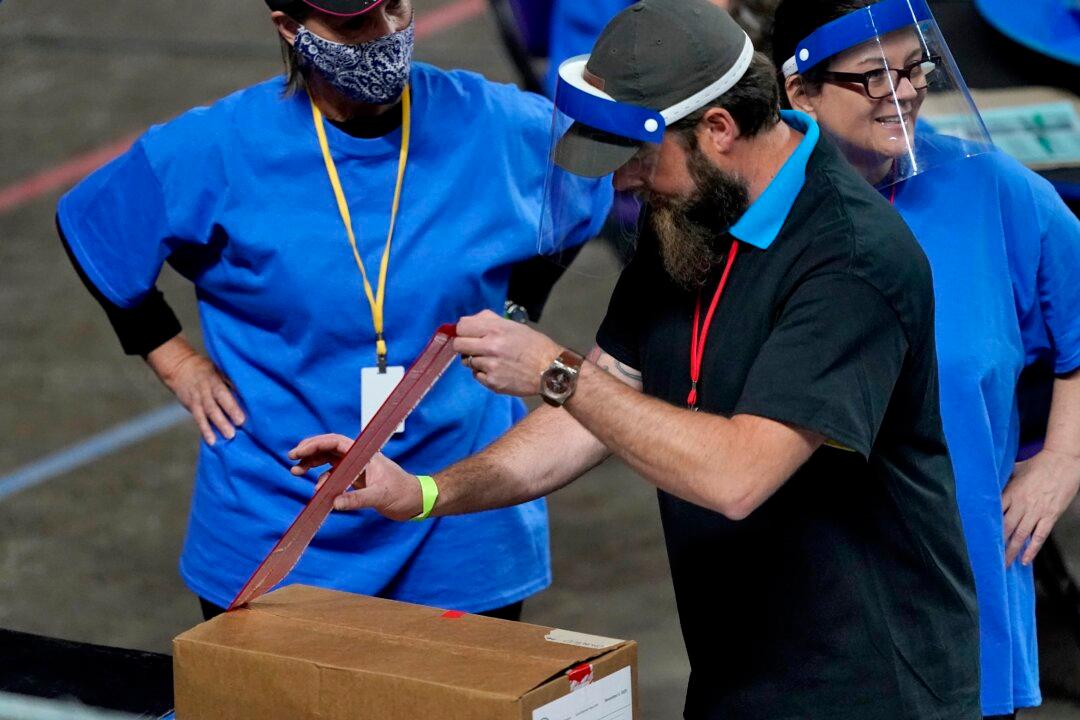Arizona’s Senate president on Friday told the U.S. Department of Justice (DOJ) that a plan by election auditors to verify the validity of certain voters is on hold indefinitely.
“If and to the extent the Senate subsequently decides that canvassing is necessary to the successful completion of the audit, its vendor will implement detailed requirements to ensure that the canvassing is conducted in a manner that complies fully with the commands of the United States Constitution and federal and state civil rights laws,” Arizona Senate President Karen Fann, a Republican, told Pamela Karlan, a DOJ official, in a letter.





